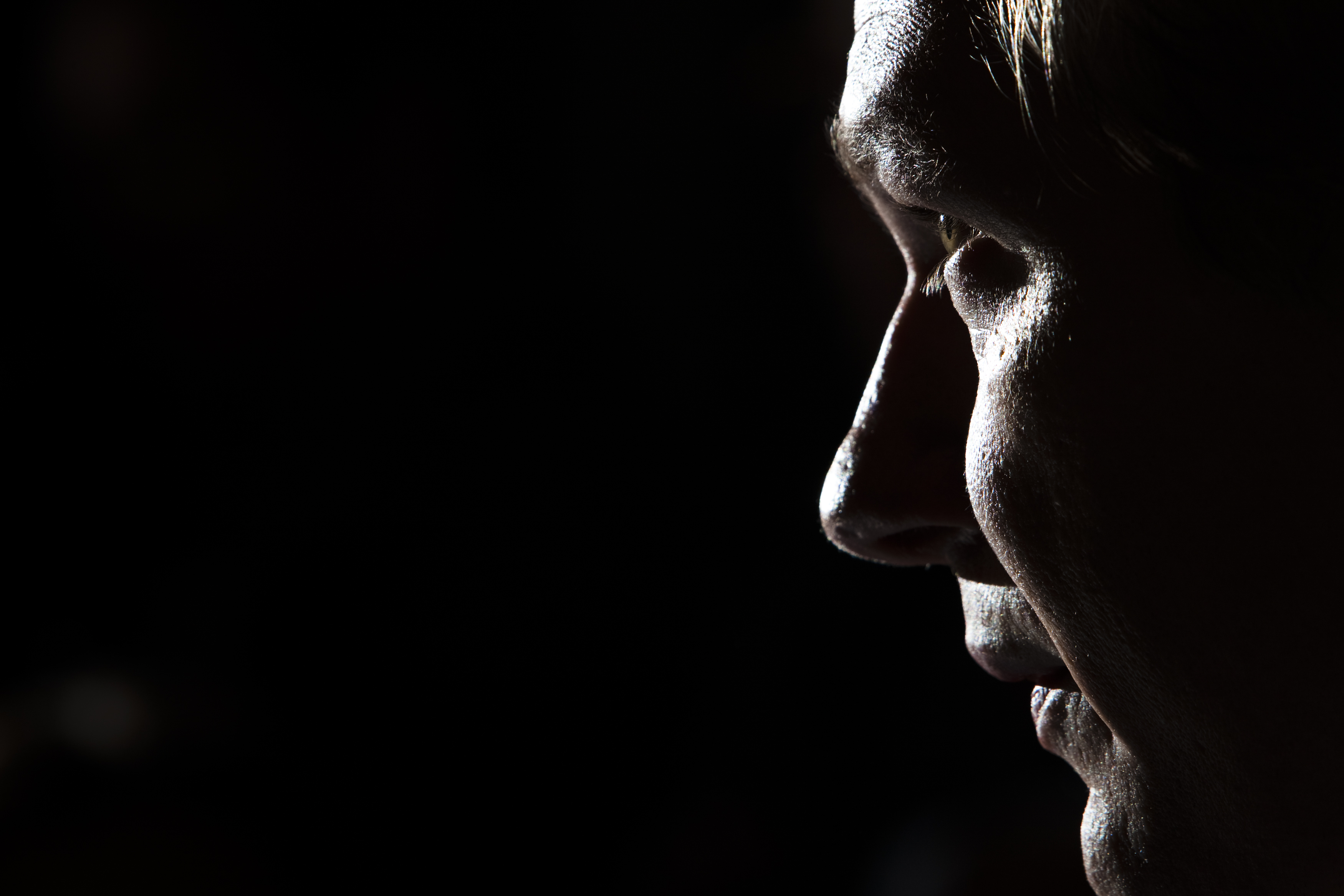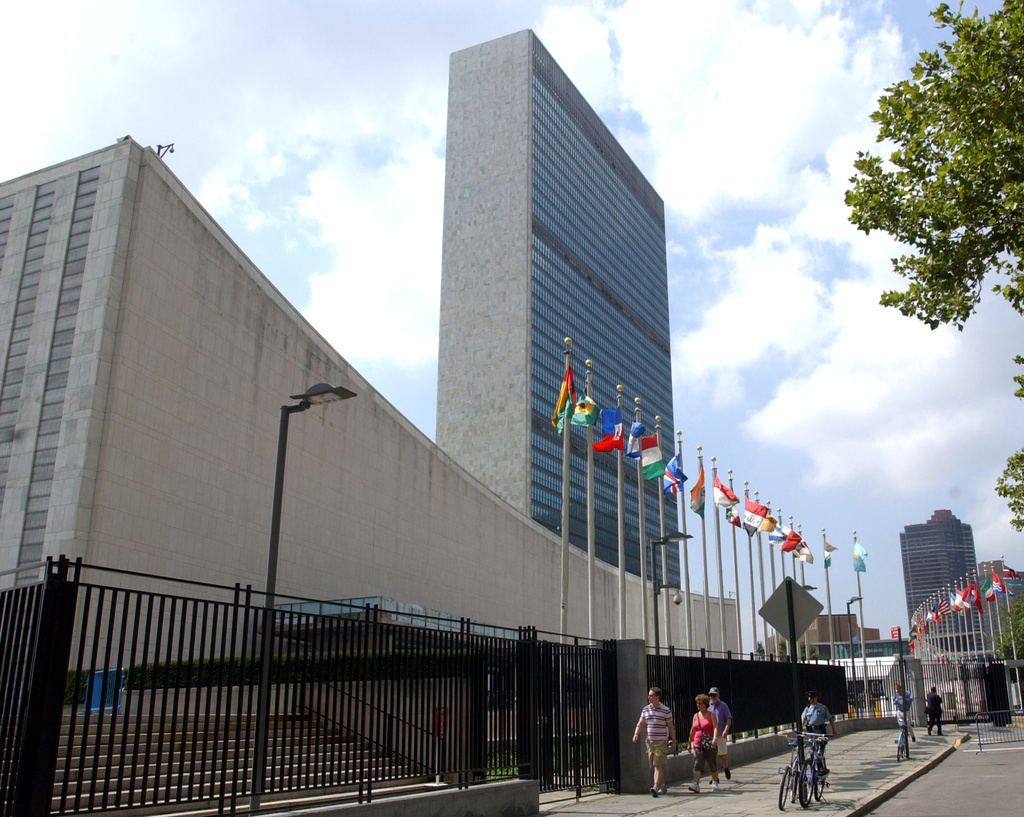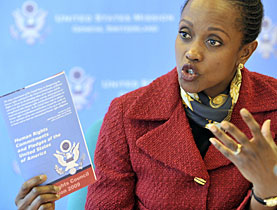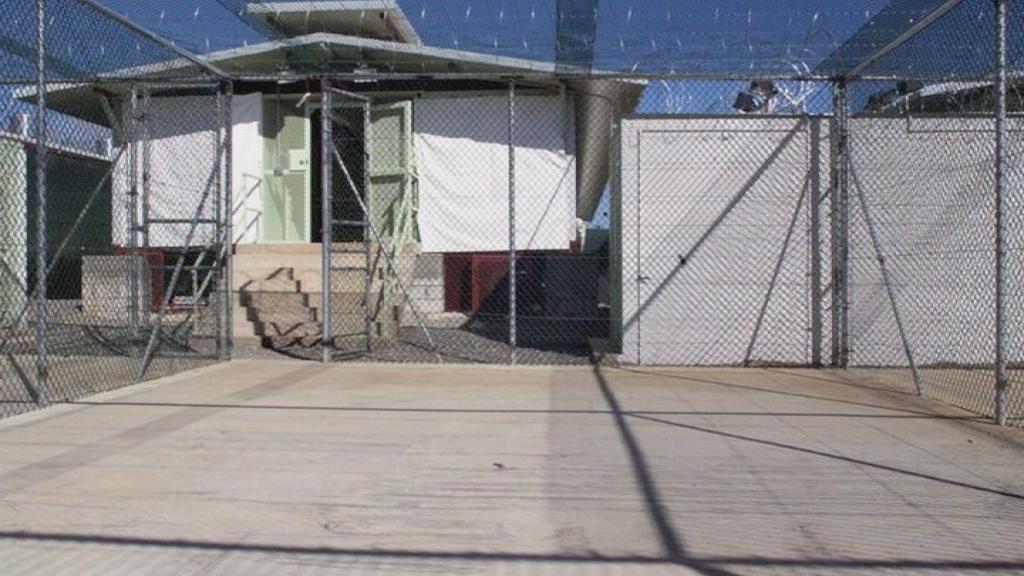United States placed in human rights hot seat

The United States has been defending its human rights record before the Geneva-based United Nations Human Rights Council.
A 30-strong US delegation was grilled by more than 80 states on issues ranging from the Guantanamo detention centre to racial discrimination. Switzerland called for a moratorium on executions with a view to abolishing the death penalty.
The US was the 136th UN member state to be scrutinised by allies and adversaries in the UN rights body, as the Obama administration opens itself up to a council that was shunned by his predecessor.
US Assistant Secretary of State Esther Brimmer, head of the high-level delegation, said she was honoured to present the first US Universal Periodic Review (UPR).
“We take our place in the UPR process with pride in our accomplishments, honesty in facing continued challenges, and a commitment to using the international system to elevate and advance the protection of human rights at home and abroad,” she told the packed meeting room in Geneva.
Cuba, Venezuela, Russia and Iran, some of the US’s fiercest critics, were among the first to speak during the three-hour meeting.
The Cuban ambassador, Rodolfo Reyes Rodriguez, called on the Americans to end their embargo against his country.
Iran’s delegation urged the US to “halt serious violations of human rights and humanitarian law including covert external operations by the CIA carried out on pretext of combating terrorism”.
Many countries raised similar issues such as the death penalty, failure to ratify key human rights conventions, the treatment of migrants, racial discrimination, US prison conditions, the closure of the Guantanamo detention centre and related abuses allegedly committed during the war on terror.
Death penalty
Switzerland, like Ireland, France, Britain and a host of others, called on the United States to bring in a moratorium on executions with a view to abolishing the death penalty.
More than 1,200 men and women have been put to death in the US since executions resumed in 1977 after a decade without them, according to Amnesty International.
By welcoming three Guantanamo detainees, Switzerland has contributed to the closure of the camp, declared Dante Martinelli, Swiss ambassador to the UN.
“We recommend the US find solutions for all those people still detained which complies with US obligations under international law and human rights law,” he said, referring to the 174 people still held in Guantanamo.
US State Department legal adviser Harold Koh responded by saying “the President cannot close Guantanamo alone” and would need help from Congress, the US courts as well as foreign allies willing to take in released inmates.
“Our intensive efforts to close that facility continue every day,” he said.
Torture and abuse
Russia recommended “a careful investigation of the facts in the use of torture especially in Guantanamo and Bagram” air force base in Afghanistan.
The UPR review came just two weeks after whistleblowing website WikiLeaks published 400,000 classified US documents on the Iraq war, reviving concerns about a lack of accountability for abuse.
Koh maintained that cases by US military forces had led to investigations and disciplinary action, credible allegations of violations were reported and the US did not transfer individuals to torture in Iraq or elsewhere.
“Let there be no doubt, the United States does not and will not torture,” he added. “This administration began by turning the page and unequivocally ensuring the humane treatment of all individuals in US custody in armed conflict.”
“Largely constructive”
At the end of the three-hour debate, Brimmer said the dialogue had been “useful, respectful, balanced and largely constructive”.
Antonio Ginatta, US advocacy director at Human Rights Watch, said he was very happy with US commitment to the UPR process, the numerous consultations with US civil society and the high-level presence, but was “dissatisfied” with many of the delegation’s answers.
“There is very slow movement on Guantanamo and counter-terrorism issues, and vague side-stepping on general prison conditions, criminal justice and racial discrimination,” Ginatta told swissinfo.ch, while criticising the delegation’s defence of capital punishment and life without parole for offenders under 18.
“They could have been much more forceful and self-critical,” added his colleague, Juliette de Rivero. “There is a kind of response on where we are today but not on how we can move forward in the future.”
Yves Lador, a Geneva-based human rights specialist, felt the US UPR clearly represented openness from the Obama administration, which had a “positive approach” to the council.
“The risk is that any policies in Geneva might not totally reflect what happens back in the US,” he noted.
“But it’s clear that a really important human rights network has been mobilised in the US to follow up this process. This is new.”
Swiss Foreign Minister Micheline Calmy-Rey presented the concept of the Human Rights Council in March 2004 to replace the widely discredited and highly politicised UN Human Rights Commission created in 1946. The UN officially accepted the idea in September 2005.
The first session of the UN Human Rights Council took place in June 2006 at its headquarters in Geneva. The council reports directly to the UN General Assembly.
It consists of 47 member states, which are selected with absolute majority by the UN General Assembly. It meets at least three times a year and can also hold special meetings to discuss crisis situations.
The 27 seats of African and Asian countries heavily outvote western countries, which hold seven seats on the council.
Under the Universal Periodic Review (UPR) process, each of the 192 UN members’ human rights records is reviewed by peers every four years. It is currently about two-thirds into the first cycle, which will be completed at the end of 2011.
Switzerland was one of 47 countries to sit on the council from 2006-2009 but is now just an observer for one year. The country has applied to be a full member from 2010-2013. The UN General Assembly will vote on the matter in May.
A resolution of the UN General Assembly creating the council called for two review processes of the council in 2011. In one the council was asked to review its working methods and functioning after five years. The second review in New York will assess the status of the council and whether it should be a principle body of the UN like the General Assembly.
The Human Rights Council is the most senior UN body based in Geneva.
Birthplace of the League of Nations, the UN’s predecessor, Geneva is the world body’s second home after New York.
The United Nations Office at Geneva (UNOG) hosts more international conferences than New York and is considered the world hub for multilateral diplomacy.
Seven UN agencies are based in Geneva: the UN refugee agency, the Office of the UN High Commissioner for Human Rights, the World Health Organization, the World Intellectual Property Organization, the International Labour Organization, the World Meteorological Organization and the International Telecommunication Union.

In compliance with the JTI standards
More: SWI swissinfo.ch certified by the Journalism Trust Initiative





You can find an overview of ongoing debates with our journalists here . Please join us!
If you want to start a conversation about a topic raised in this article or want to report factual errors, email us at english@swissinfo.ch.